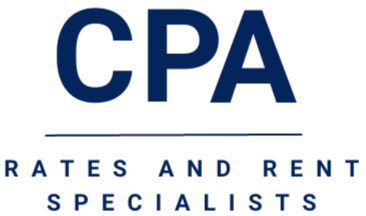The Non-Domestic Rating Act 2023
- georginaj20
- Mar 11, 2024
- 3 min read

In the shifting terrain of business rates in the UK, forthcoming changes for 2024 have sparked a dialogue among professionals and stakeholders. Leveraging insights from our surveyors at Commercial Property Advisors (CPA), who liken one of the changes to a "wolf in sheep's clothing," this piece aims to dissect the nuances of these updates and provide actionable guidance for businesses navigating this landscape.
The Dual Nature of Improvement Relief: A Cautionary Tale
The introduction of mandatory improvement relief, aimed at exempting 'qualifying improvements' from rates for a period of 12 months, presents a paradox. While ostensibly designed to foster business growth by delaying rate increases following property enhancements, this measure demands a closer examination. Our surveyors warn of its potential pitfalls, suggesting that what appears as a benefit may, in fact, ensnare unsuspecting businesses. This "wolf in sheep's clothing" relief could compel businesses to inadvertently report improvements, thus increasing their rates without prior realisation of the implications.
Mandatory Reliefs: Improvement Relief
Overview: The surveyors criticise the improvement relief as a method by which the Valuation Office Agency (VOA) seeks to capture increases in property value due to improvements without proactive inspection efforts. This criticism suggests a scepticism towards the VOA's approach, implying it places the onus on businesses to report improvements that could increase their rates.
Qualifying Improvements: The definition of what constitutes a qualifying improvement (e.g., additions that increase floor area) is seen as vague, with concerns that the government's intention of delaying rating liability increases for 12 months may not be as beneficial as it appears. The lack of clarity and potential for misunderstanding among ratepayers about their obligations and the impact of improvements on their rates is a significant concern.
No Right to Challenge: A major drawback highlighted is the automatic nature of this relief, which does not allow for challenges or corrections of errors by the VOA, potentially leading to issues for ratepayers who find discrepancies.
3-Year Revaluation
Overview: The shift to a 3-year revaluation cycle is welcomed for its ability to more accurately reflect market conditions and reduce the impact of economic anomalies. This change is seen as a move towards more dynamic and responsive rating lists, which can adapt to significant economic shifts more effectively than longer cycles.
Debate on Implementation: There's an ongoing debate within the industry about the practicality of adjusting the Antecedent Valuation Date (AVD) to one year before the list comes into effect, highlighting the challenges of implementing such changes within the VOA's current resource constraints.
Transition Relief Changes Changes in 2023
Overview: The temporary removal of downwards TR and the potential for its reintroduction indicates a fluid approach to transition relief, which may lead to unpredictability for ratepayers. The surveyors suggest that shorter revaluation cycles could mitigate the need for TR, as market conditions would be reflected more promptly in the rating lists.
Material Change in Circumstances (MCC) Changes
Overview: The proposed bill's changes to MCC criteria, which would exclude changes in legislation from qualifying for MCC, are seen as limiting. This restriction means that only physical or site-specific changes would be considered for MCC, potentially excluding significant factors that could affect a property's value or business operations.
Navigating the 2024 Business Rates Changes: What You Should Do
Stay Informed: With the landscape of business rates evolving, it's crucial for businesses to stay abreast of the latest developments. This includes understanding the specifics of the shorter revaluation cycles and the new obligations for ratepayers to report changes toPrepare for Compliance: With the obligation to report changes and provide annual confirmations, businesses should prepare their internal processes for compliance. This includes establishing clear lines of communication and data management practices to ensure timely and accurate reporting.
As we approach the implementation of these changes, the metaphor of the "wolf in sheep's clothing" serves as a reminder of the need for a critical examination their properties.
Understand Your Obligations: The introduction of a requirement for businesses to transparently declare changes to their properties underscores the need for vigilance. Businesses must familiarise themselves with what constitutes a 'qualifying improvement' and the implications for their rates.
Engage with the Valuation Office Agency (VOA): Utilise the VOA's resources to ensure your property's details are accurate and up-to-date. This proactive engagement can help in rectifying any discrepancies and avoiding potential pitfalls arising from the new changes.
Seek Professional Guidance: Given the complexity of the changes, consulting with property and tax professionals can provide valuable insights and strategies to navigate the new business rates landscape effectively. Commercial Property Advisors (CPA) offers expert advice and support to businesses facing these challenges.
of the proposed improvements. By staying informed, understanding obligations, engaging with relevant agencies, seeking professional guidance, and preparing for compliance, businesses can navigate these changes more effectively. Commercial Property Advisors (CPA) remains committed to supporting businesses through this transition, offering guidance and advocacy to ensure that the evolving business rates system is navigated with clarity and confidence.



